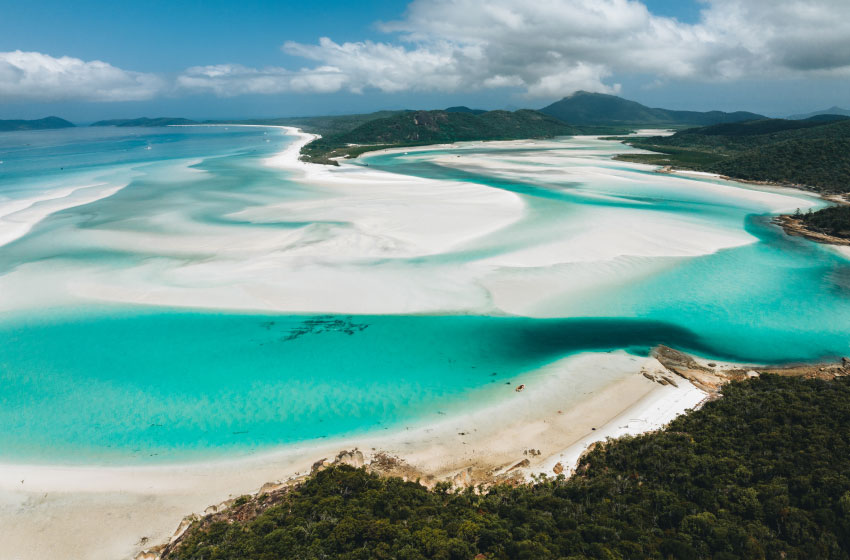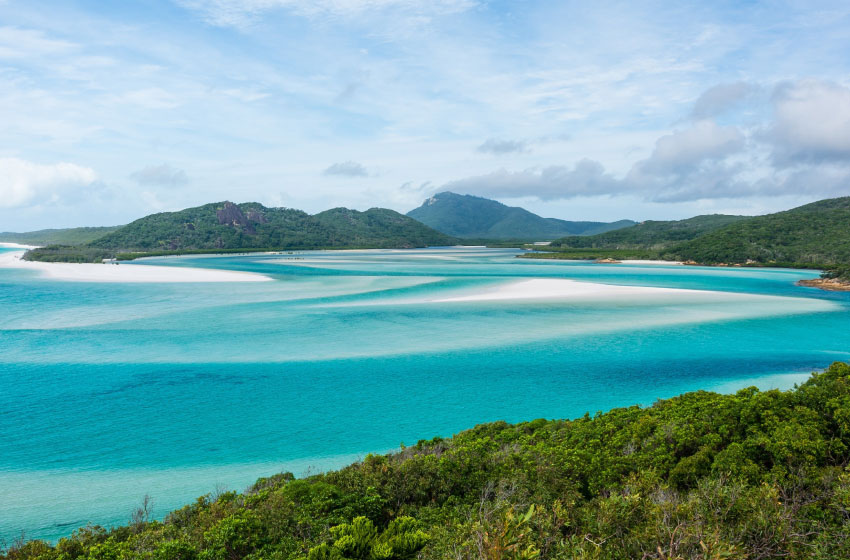Australia’s Whitehaven Beach – A New Leader in Global Beach Destinations

In a striking achievement that has ignited the global travel community, Whitehaven Beach in Queensland, Australia, has been crowned the world’s best, outshining iconic beach destinations in Hawaii, Greece, and Fiji. This prestigious recognition not only bolsters Australia’s reputation as a top-tier beach destination but also brings into focus the unmatched beauty and allure of its coastal offerings.
Whitehaven Beach- A Pristine Paradise
Whitehaven Beach is celebrated for its pristine white silica sands and crystal-clear turquoise waters, alongside the vibrant ecosystem that encapsulates its surroundings. The accolade was awarded based on various criteria, including the quality of sand and water, accessibility, local climate, and the overall visitor experience. The beach’s exquisite natural beauty, coupled with its conservation initiatives and the availability of high-quality amenities, played a significant role in its top ranking.
Outshining Global Competitors
The competition for the title of the world’s best beach is intense, with destinations such as Hawaii, Greece, and Fiji traditionally favoured for their iconic coastlines and inviting tourist atmospheres. Hawaii is renowned for its volcanic landscapes and surf spots, Greece for its historic shores and sparkling waters, and Fiji for its lush, tropical islands. Yet, Whitehaven Beach distinguished itself by offering an exceptional blend of breath-taking natural beauty, biodiversity, and sustainable tourism practices that resonate with eco-conscious travellers and beach aficionados alike.
Boosting Local Tourism
Earning the title of the world’s best beach is expected to significantly boost tourism, attracting visitors not only to Whitehaven Beach itself but also to the broader Whitsunday region. The local economy is poised to benefit from increased activity in hospitality, retail, and other services, providing a vital lift, particularly following the travel downturn caused by the COVID-19 pandemic.
Commitment to Sustainable Tourism
Beyond its physical charm, Whitehaven Beach’s commitment to sustainability sets it apart. Efforts by local authorities and the community to preserve the natural environment include development restrictions and initiatives to protect marine life, ensuring the beach remains pristine for future generations. These sustainable practices are increasingly important to today’s environmentally conscious travellers.
Enhancing the Appeal of Australian Beaches
The acclaim received by Whitehaven Beach also underscores the broader appeal of Australia’s coastal destinations. Known for their diversity, Australian beaches range from tranquil, sandy shores to dramatic, rugged coastlines. This recognition is expected to spotlight other Australian beaches, promoting less-known locales that deserve global attention.

Navigating Future Challenges
With greater popularity comes the challenge of managing increased tourist numbers without compromising the attributes that make Whitehaven Beach special. Local communities and authorities face the task of balancing tourism growth with environmental preservation, which includes managing waste, controlling visitor numbers during peak periods, and promoting conservation awareness among tourists.
Expanding Sustainable Tourism Practices
For Australia, this accolade offers an opportunity to promote sustainable tourism practices more broadly across all natural attractions. Showcasing Whitehaven Beach as a model of how tourism and environmental responsibility can coexist sets a benchmark for eco-tourism globally.
This recognition is not only a proud moment for Australia but also highlights the nation’s dedication to preserving its natural wonders. As global awareness of environmental issues grows, and the impact of tourism on natural sites becomes more scrutinised, Australia’s example with Whitehaven Beach stands as a beacon of sustainable tourism. Visitors to this celebrated beach can enjoy more than just its stunning scenery; they engage with a destination that values ecological preservation as much as tourist satisfaction.





